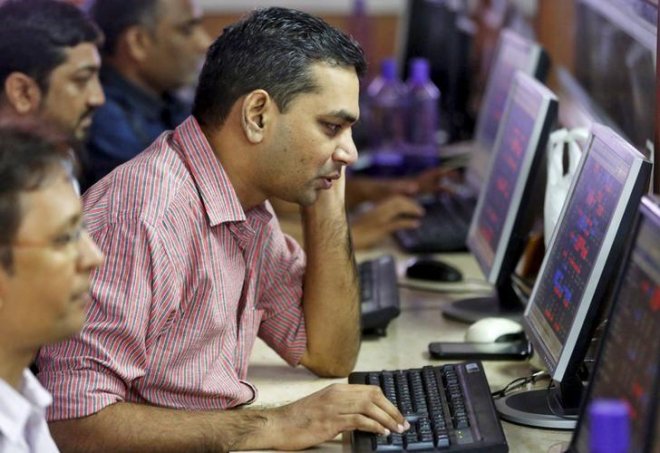
Indian shares declined on Wednesday, in line with Asian shares after a slide on Wall Street overnight as simmering geopolitical tensions kept many investors on edge.
MSCI's broadest index of Asia-Pacific shares outside Japan fell 0.7 percent.
Risk appetite waned after North Korea conducted its sixth and most powerful nuclear test, which it said was of an advanced hydrogen bomb for a long-range missile, prompting the threat of a "massive" military response from the United States if it or its allies were threatened.
The White House declared on Monday that "all options to address the North Korean threat are on the table", Reuters reported.
At 0635 GMT, the S&P BSE Sensex lost 0.50 percent at 31,649 while the broader NSE Nifty dropped 0.42 percent at 9,910.
Among the top index losers, Sun Pharma tanked 3.2 percent, Lupin dragged 2.3 percent, ITC fell 2.2 percent while Axis Bank shed 1.3 percent.
The S&P BSE Healthcare Index dropped 1.2 percent while the S&P BSE Realty index lost 1 percent.
Bharat Financial Inclusion dropped 2 percent after the Reserve Bank of India said foreign portfolio investment in Bharat Financial shares reached trigger limit.
ITC lost over 2 percent after two brokerages cut its rating on the stock. Jefferies India and Macquarie has downgraded the stock to Hold and Neutral and reduced its target price to Rs 305 and Rs 304, respectively.
Among the gainers, Just Dial advanced 2.2 percent after HDFC Mutual Fund bought 3.2 million shares in the company on Tuesday.
Merck jumped 5 percent after the company said its holding company is considering full or partial sale of its $1 billion consumer health business.
Market breadth was in the favour of gainers, with about 2 stocks advancing to every 1 stock that declined.








